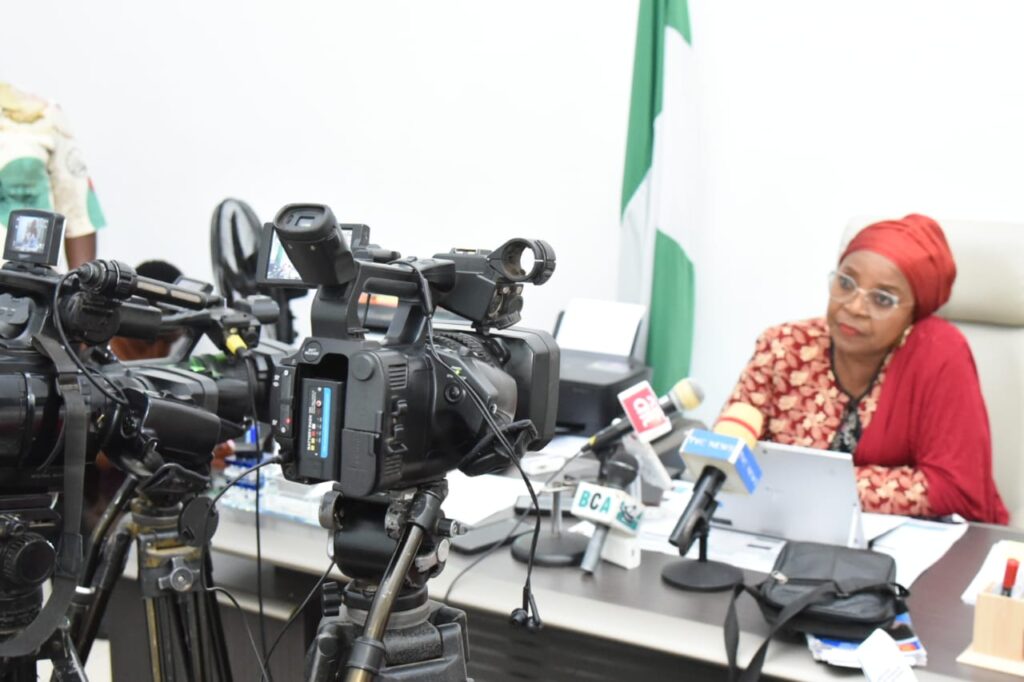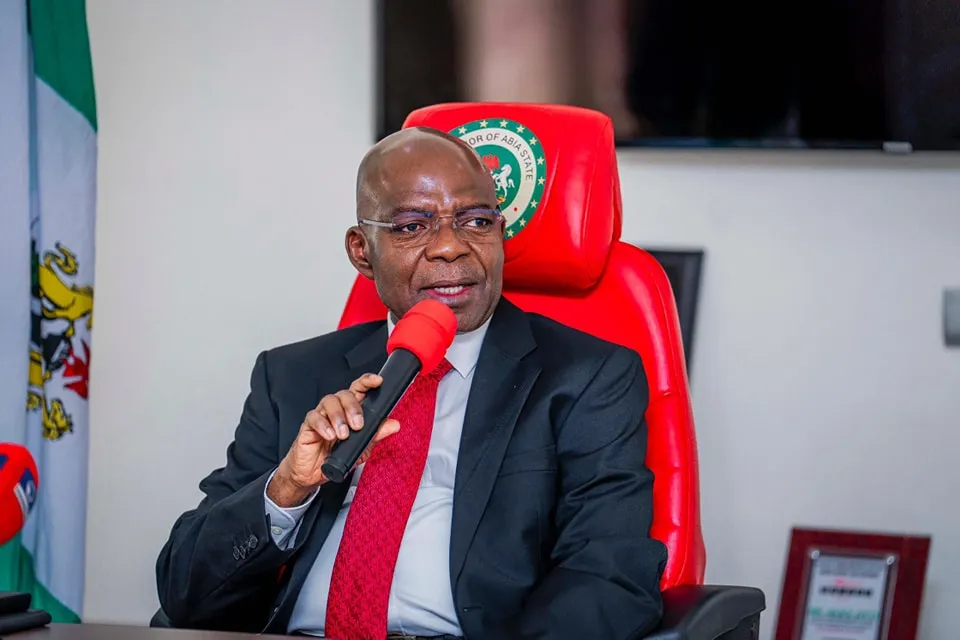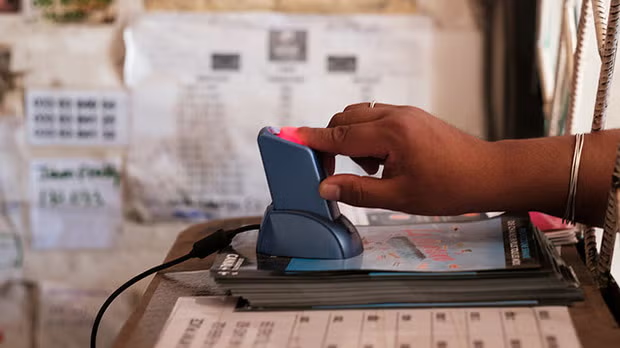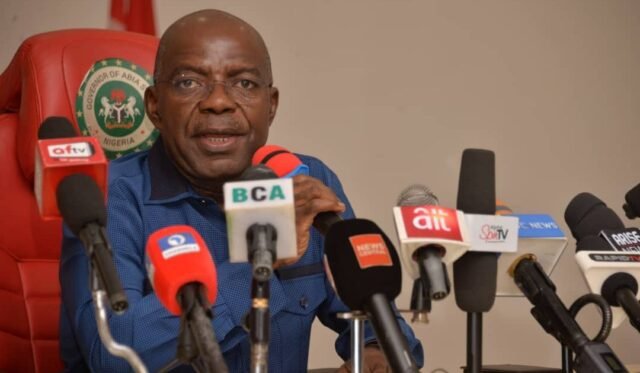Lydia Onuoha, the Chairperson of the Abia State Universal Basic Education Board (ASUBEB), has issued a firm directive: any public school teacher found neglecting their duties through misconduct, dereliction, or absenteeism will face the full weight of the Public Service Rule and Teachers’ Code of Conduct. That means official queries, suspension, or even dismissal are now on the table.
This decisive move comes as Governor Alex Otti’s administration steps up efforts to tackle a worrying trend: an increasing number of teachers failing to show up for work in public primary and junior secondary schools across the state.
Table of Contents
A response to absenteeism in Abia State
Onuoha highlighted that despite recent improvements in teacher welfare—like prompt salary payments, approved promotions, leave allowances, and realisation of a 27.5% “special salary” increment—attendance remains a critical issue. “The full weight of public service rules shall be invoked where necessary,” she declared, emphasising that the state will not hesitate to act in the best interest of students and the broader community.
To ensure accountability, ASUBEB will roll out a comprehensive monitoring and enforcement strategy in collaboration with local government education authorities and school-based management committees. This includes unannounced school visits, surprise audits, and compulsory submission of monthly teacher attendance reports by head teachers, submitted to both Local Government Education Authorities and ASUBEB for review.

Biometric tracking takes centre stage
Perhaps the most transformative part of the initiative is the introduction of Biometric Attendance Systems across schools. These systems will precisely monitor daily teacher presence, stamping out excuses and ensuring punctuality.
This shift aligns with broader digital efforts previously witnessed in Abia’s civil service. In a 2023 exercise, tens of thousands of civil servants and pensioners underwent biometric verification, reflecting the state’s commitment to leveraging technology for transparency. The same technological momentum is now being directed into education—a move that, as Reddit users noted in similar school reforms elsewhere, “saying something is one thing, implementing is another.” Onuoha’s announcement, however, signals a serious intent to follow through.
Why the urgency?
Teacher absenteeism isn’t a new problem. Frequent reports from other states highlight how unreliability among educators erodes education quality. A Reddit commenter from Nigeria pointed out that biometric systems, when properly executed, can be game‑changers:
“Honestly! Saying something is one thing, implementing is another. I really hope this comes to fruition.”
When public school staff are absent consistently, pupils suffer—performance dips, class sizes balloon due to rearrangements, and trust in the system wanes. With Governor Otti’s administration already investing heavily in education—like rolling out a free compulsory education policy, and planning to recruit more than 5,000 teachers—poor attendance threatens that progress.
Beyond punishment: a fair environment
While the message is tough, it’s far from punitive without cause. Onuoha emphasised the state’s improvements in teacher welfare. Salaries are paid consistently, promotions approved, and significant allowances granted. These steps are designed to lift morale before enforcement kicks in.
She stated that poor attendance is a betrayal of professional ethics and public trust. I agree—and that’s why coupling discipline with support is crucial. Teachers deserve to be motivated and heard. Regular welfare checks, training, and engagement sessions alongside these measures could make all the difference.

How this plays out day-to-day
Here’s a snapshot of what implementation may look like:
- Every public primary and junior secondary school get biometric devices—fingerprint or facial ID scanners—soon.
- Head teachers supervise device use, ensuring daily clock-in/out accuracy.
- Monthly attendance logs are submitted to LGEs and ASUBEB.
- Surprise school inspections validate these attendance records.
- Persistent absenteeism triggers formal disciplinary actions—query, suspension, or dismissal.
- Simultaneously, teacher welfare remains a priority, with continued salary reliability and benefits.
Technically, it’s ambitious. Installing biometric devices across hundreds of schools and integrating them into a responsive system won’t be easy. District-level tech support, reliable connectivity, and comprehensive training will be critical, just as they were in Abia’s earlier civil service rollouts.
Learning from earlier digital reforms
Abia State’s 2023 biometric verification programme for civil servants and pensioners saw over 62,000 people authenticated, with strict deadlines and enforcement of consequences. Those efforts purified payrolls and strengthened accountability; they can now serve as a foundation for this educational initiative.
In other Nigerian states and beyond, failures occurred when systems were announced but not fully implemented—technological glitches, resource gaps, and lack of follow-up undermined efforts. Abia has the advantage of past lessons—and a clear understanding: trust leaders to act, and they will.
What success could look like in Abia State
When effectively executed, this policy could:
- Reduce absenteeism significantly.
- Improve student outcomes through consistent classroom presence.
- Elevate the quality of public education.
- Reinforce public trust in government and institutions.
Governor Otti’s broader education agenda—making History and Igbo mandatory, recruiting thousands of teachers, refurbishing and restoring schools—paints a picture of revitalisation. The biometric policy must fit seamlessly within this architecture, reinforcing each reform pillar.
Challenges on the horizon
Of course, the path forward has potential roadblocks: hardware costs, device maintenance, teacher training, electricity and internet interruptions, and even resistance from those accustomed to lax accountability.
Proactive planning is essential: scalable tech deployment, reliable support infrastructure, timely budget allocation, stakeholder engagement, and feedback loops are non-negotiable. Community-based monitoring—like parent-teacher associations—could also help reinforce transparency and trust.

Final thoughts
Abia State’s decision to clamp down on teacher absenteeism and introduce biometric checks is a pivotal step toward educational accountability. By pairing enforcement with welfare enhancements and improved infrastructure, the state is setting the stage for real change.
But its success hinges on execution. Biometric tracking must be implemented sensibly and supported by robust logistics. Teacher development and dialogue should accompany monitoring. And the state must stay flexible, adapting to challenges and building on feedback.
The message is clear: education matters, and everyone—teachers, administrators, officials—must participate fully. With meaningful execution, this policy could mark a turning point in public education in Abia State and set a benchmark for other Nigerian states to follow.
Join Our Social Media Channels:
WhatsApp: NaijaEyes
Facebook: NaijaEyes
Twitter: NaijaEyes
Instagram: NaijaEyes
TikTok: NaijaEyes
READ THE LATEST EDUCATION NEWS








































